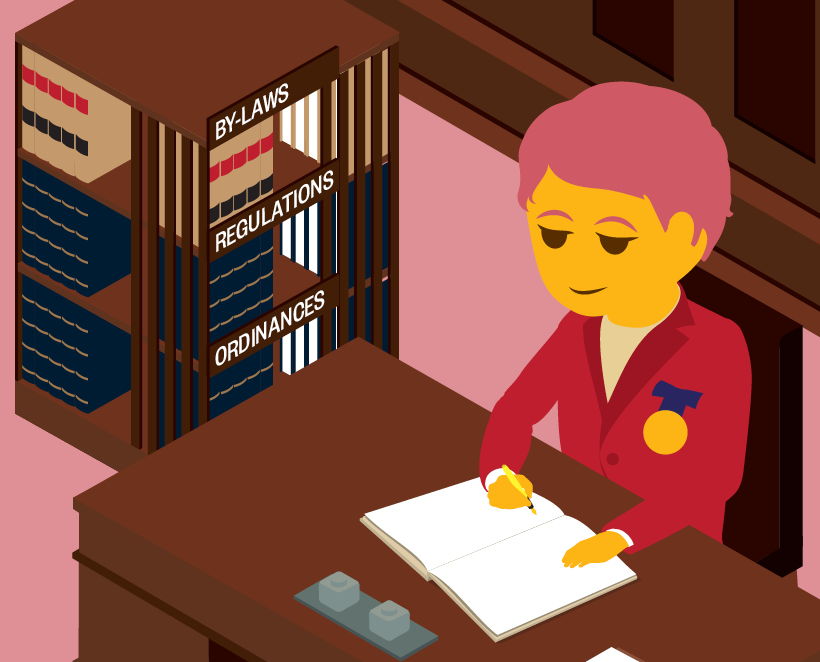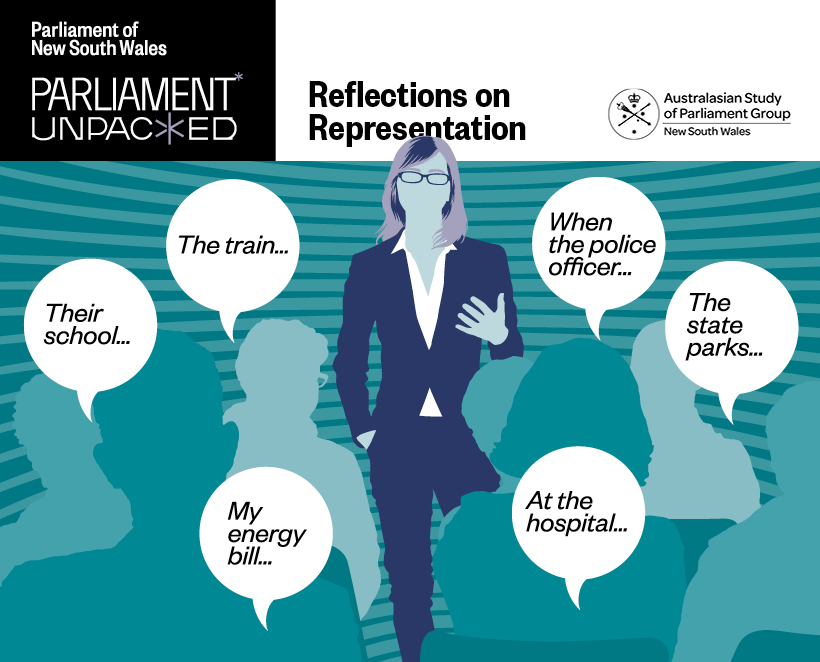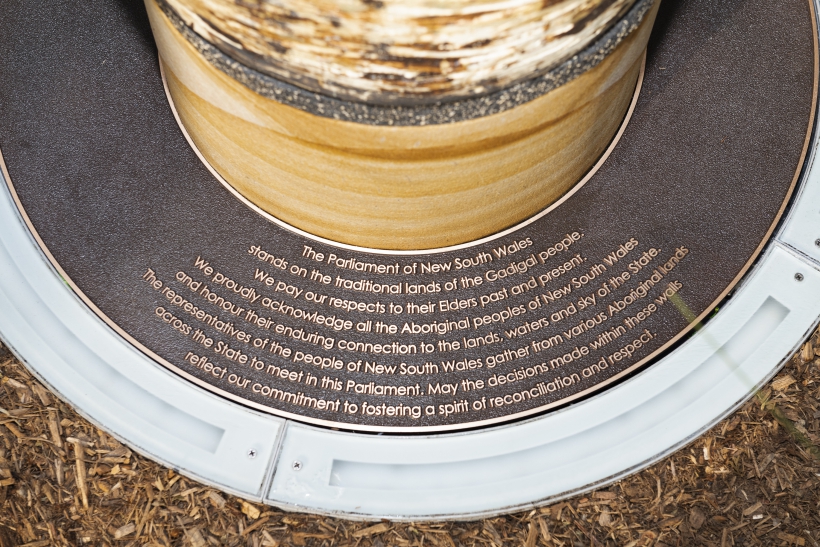
Also known as regulations, by-laws, ordinances, subordinate legislation or statutory rules, delegated legislation is not made directly by an Act of Parliament. The Subordinate Legislation Act 1989 regulates the making and duration of delegated legislation. Under the Act these statutory rules are made by the Governor of NSW, however in practice delegated legislation is made by a Minister (or other executive officeholders) and approved or confirmed by the Governor.
The essential premise is that Parliament, under primary legislation, sets the general principles; laying the groundwork that will guide executive government when administering the Act. This means that technical details and rules that may require expertise not held by Members of Parliament can be made by the appropriate government department in consultation with subject experts. Delegated legislation is also a practical necessity in instances where speedy and flexible responses are needed or in cases of emergency.
A recent example was the health restrictions or Public Health Orders enacted under section 7 of the Public Health Act 2010 during the COVID 19 pandemic. Information and knowledge about the pandemic were changing daily and the rules needed to keep up. These have all since been repealed.
Another example was the Essential Services Proclamation and related Regulation which gave the then Minister for Energy and Environment, The Hon. Matt Kean, the power to direct coal to the state’s electricity generators. This was enacted under the Essential Services Act 1988 No 41 and the power lasted for 30 days.
How is delegated legislation made?
The power of the executive government to make delegated legislation is conferred by a primary Act, which usually includes the following generic form of words:
‘The Governor may make regulations, not inconsistent with this Act, for or with respect to any matter that by this Act is required or permitted to be prescribed or that is necessary or convenient for carrying out or giving effect to this Act’.
Before any delegated legislation is made, there is a period of public consultation designed to inform the development process and assist the Executive in thoroughly understanding the impacts of the proposed regulation.
Delegated Legislation and the Separation of Powers
The delegation of the Parliament’s law-making power to the executive government needs to be regularly scrutinized by the Legislature to ensure that the primary legislation doesn’t inappropriately delegate excessive powers to the executive government to act on behalf of Parliament in the future, without further reference to Parliament.
There also needs to be checks and balances in place so that the delegated power is not used inappropriately by the executive government to change the law: for example changes to the law that are not in accordance with the provisions or intent of the primary legislation; that unduly trespass on personal rights and liberties; that remove the right to review of administrative decisions; and that contain matters more appropriate for parliamentary enactment by way of primary legislation.
These checks and balances include review of regulations by parliamentary committees, provisions for the repeal of delegated legislation, and the disallowance of regulations by resolution of either House of Parliament.
These NSW Parliament Committees regularly review delegated legislation:
Further Reading:
- NSW Parliamentary Research Service e-brief: Delegated legislation: Flexibility at the cost of scrutiny? by Chris Angus
- Procedural Publications NSW Parliament: Chapter 14
- Making of delegated legislation in New South Wales (Regulation Committee)
- Disallowing delegated legislation– The House in Review, NSW Legislative Council
- Parliamentary Scrutiny & COVID Public Health Orders



